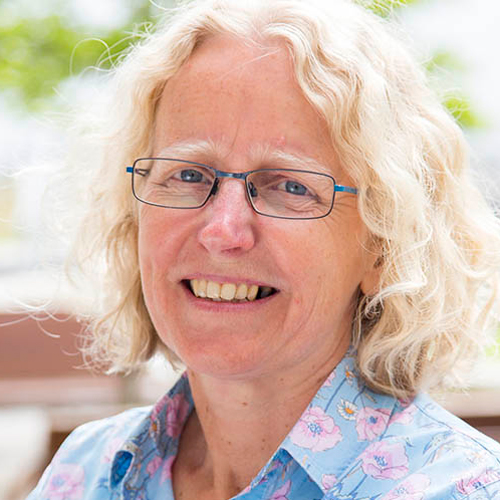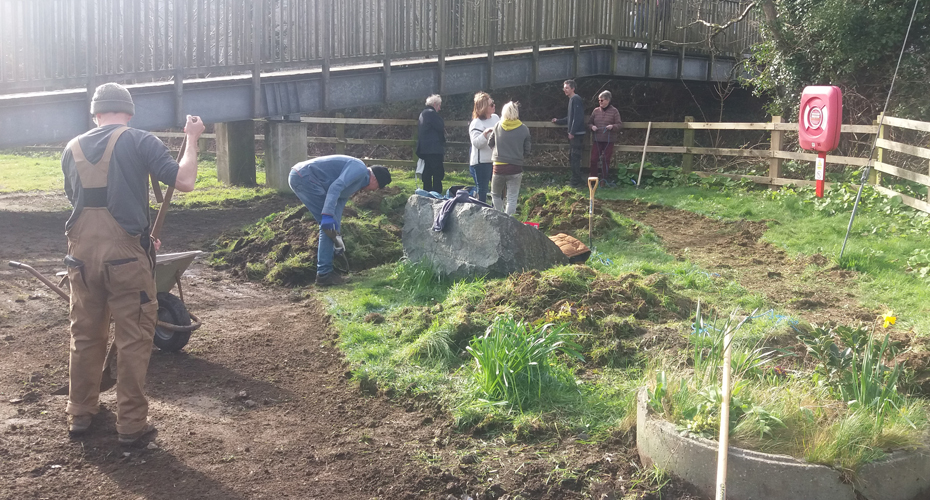Growing Communities Through Nature
Research overview:
Growing Communities Through Nature was designed to test models for community engagement in co-production and local innovation, following this up with co-designed and co-delivered maintenance, monitoring and evaluation activity. This project also explores how we can use nature-based options to reduce the impacts of climate change at a local level, by getting people involved with their local green spaces and encouraging community actions. The research team investigated the impact of using three different institutional vehicles for bringing together communities around local activity.
The project worked in three Cornish towns - Launceston, Helston and Newquay - to run workshops co-designing public open spaces in collaboration with Cornwall Council’s Making Space for Nature team, the Cornwall Voluntary Sector Forum, South Kerrier Alliance CIC and Incredible Edible Helston. The workshops aimed to bring people together to share ideas about an existing space and its potential improvement, discuss new designs for the site and how to maintain the space, as well as monitoring and evaluating its impact on biodiversity and the local community.
Key objectives:
Growing Communities Through Nature was developed to explore three key questions: (1) how to engage with local communities to promote the role of public green spaces in nature based climate mitigation and limiting biodiversity loss; (2) how different routes to engagement might lead to different outcomes and/or impact; (3) how universities can engage with diverse communities through place-based activities.
Impacts:
The workshops aimed to bring people together to share ideas about an existing space and its potential improvement, discuss new designs for the site and how to maintain the space, as well as monitoring and evaluating its impact on biodiversity and the local community. Three public spaces in Cornwall have been improved for biodiversity and for people in different ways depending on the outcomes of the workshops. In addition to the benefits of climate change mitigation, the workshops have facilitated the development of deeper working relationships between the University, partner organisations and the public and provide a blueprint for further integration between higher education institutions and communities. Experience of using co-design, co-delivery and co-monitoring methods and tools provides a foundation from which the partners can develop future place-based activities to respond to a range of needs and challenges (such as community development and housing schemes). This approach could also be scaled-up to other Cornish towns and villages via larger collaborative funding applications.

We want people to engage more with local green spaces, and to understand how well different approaches work.
If people are closely involved in the creation of sites, we hope they will also be more likely to use them in the future. Our results could help inform future improvements in Cornwall and further afield.
Professor Jane Wills
Professor Jane Wills (University of Exeter)
Dr Ros Shaw (University of Exeter)
Melissa Muir (University of Exeter)
The project is funded by UK Research and Innovation’s (UKRI) “Enhancing Place-Based Partnerships in Public Engagement” programme.

